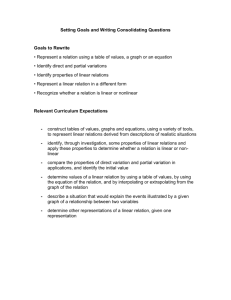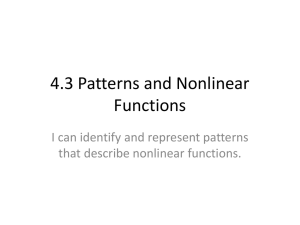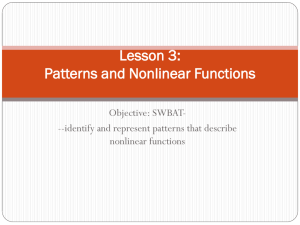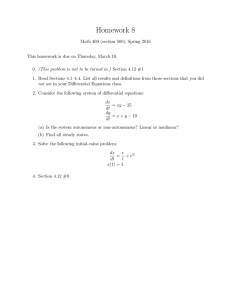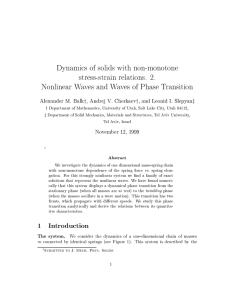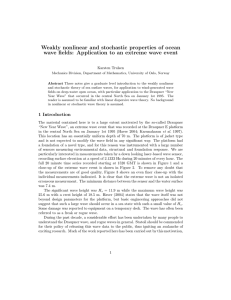UBC MATH 567, 2013W Term2: Theory of Nonlinear Waves
advertisement
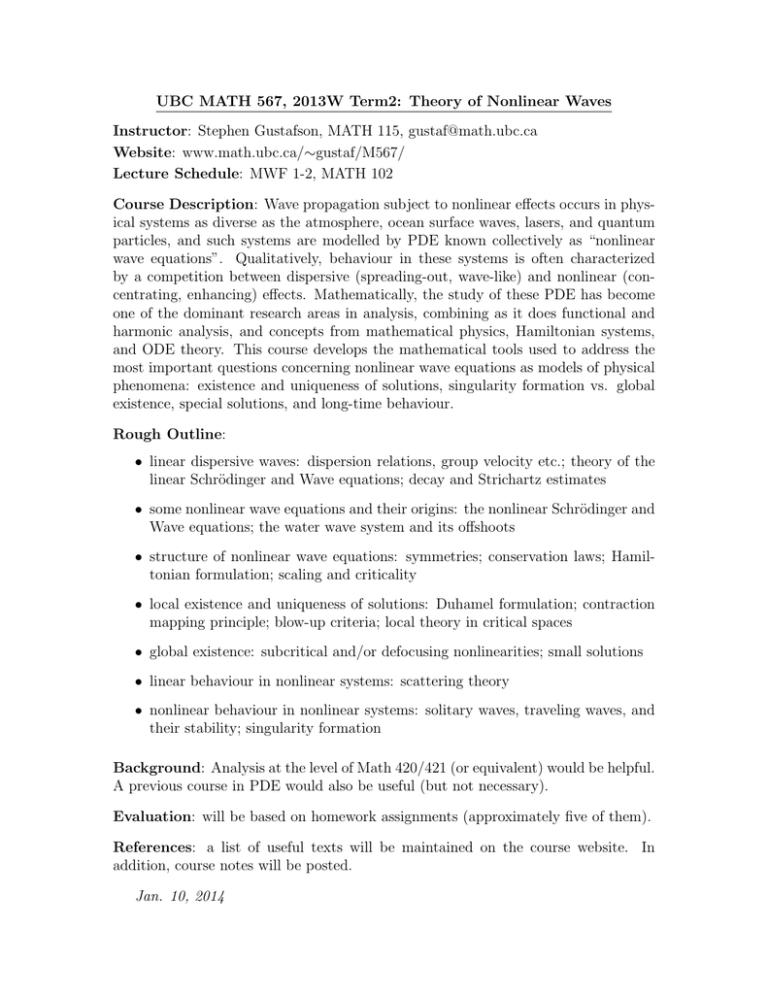
UBC MATH 567, 2013W Term2: Theory of Nonlinear Waves Instructor: Stephen Gustafson, MATH 115, gustaf@math.ubc.ca Website: www.math.ubc.ca/∼gustaf/M567/ Lecture Schedule: MWF 1-2, MATH 102 Course Description: Wave propagation subject to nonlinear effects occurs in physical systems as diverse as the atmosphere, ocean surface waves, lasers, and quantum particles, and such systems are modelled by PDE known collectively as “nonlinear wave equations”. Qualitatively, behaviour in these systems is often characterized by a competition between dispersive (spreading-out, wave-like) and nonlinear (concentrating, enhancing) effects. Mathematically, the study of these PDE has become one of the dominant research areas in analysis, combining as it does functional and harmonic analysis, and concepts from mathematical physics, Hamiltonian systems, and ODE theory. This course develops the mathematical tools used to address the most important questions concerning nonlinear wave equations as models of physical phenomena: existence and uniqueness of solutions, singularity formation vs. global existence, special solutions, and long-time behaviour. Rough Outline: • linear dispersive waves: dispersion relations, group velocity etc.; theory of the linear Schrödinger and Wave equations; decay and Strichartz estimates • some nonlinear wave equations and their origins: the nonlinear Schrödinger and Wave equations; the water wave system and its offshoots • structure of nonlinear wave equations: symmetries; conservation laws; Hamiltonian formulation; scaling and criticality • local existence and uniqueness of solutions: Duhamel formulation; contraction mapping principle; blow-up criteria; local theory in critical spaces • global existence: subcritical and/or defocusing nonlinearities; small solutions • linear behaviour in nonlinear systems: scattering theory • nonlinear behaviour in nonlinear systems: solitary waves, traveling waves, and their stability; singularity formation Background: Analysis at the level of Math 420/421 (or equivalent) would be helpful. A previous course in PDE would also be useful (but not necessary). Evaluation: will be based on homework assignments (approximately five of them). References: a list of useful texts will be maintained on the course website. In addition, course notes will be posted. Jan. 10, 2014

